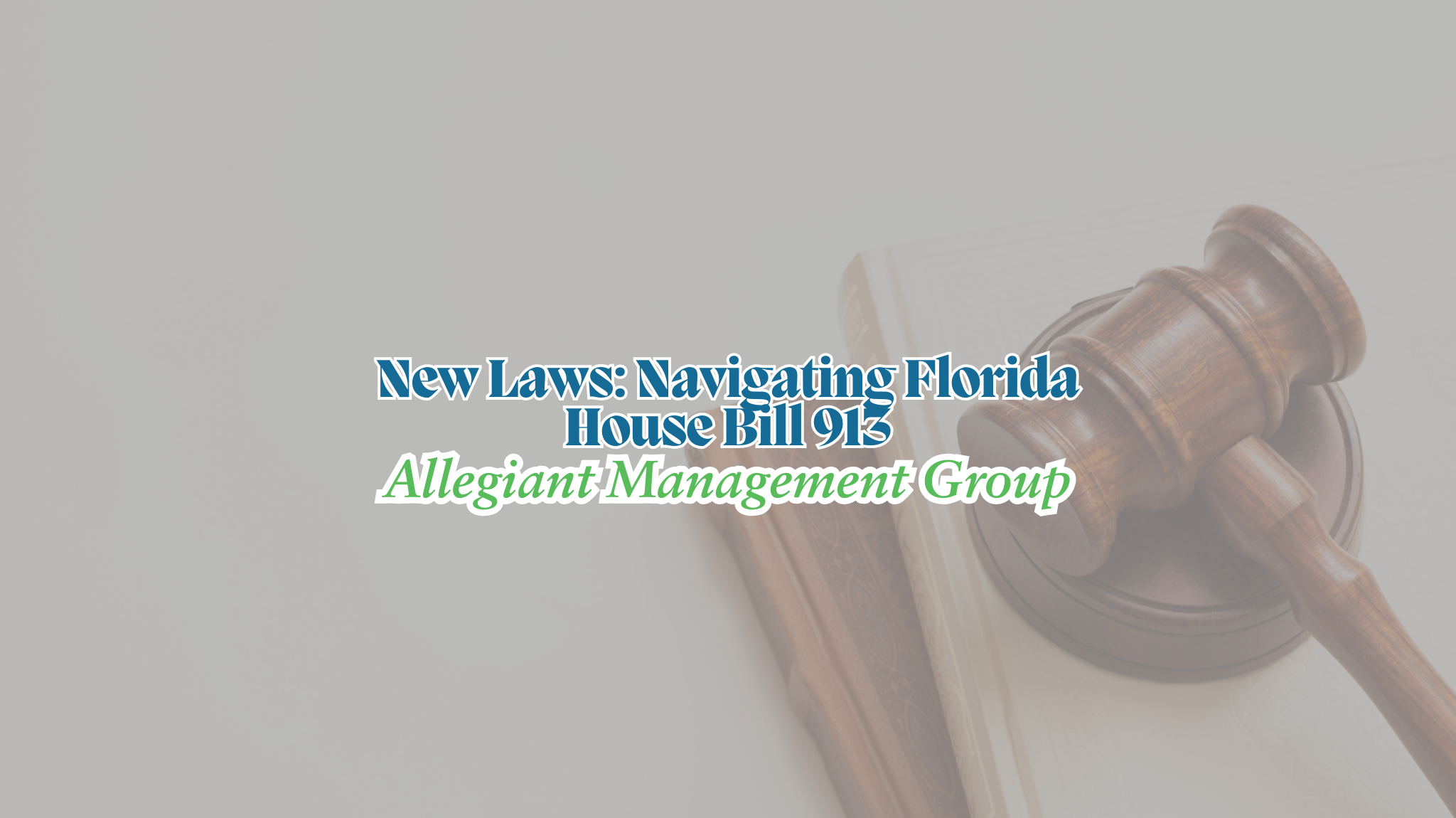Last updated: September 27, 2025 — HB 913 was signed June 23, 2025 (Ch. 2025-175) and took effect October 1, 2025.
📌 Table of Contents
- Overview of Florida House Bill 913
- Key Objectives and Goals
- Timeline of the Legislative Process
- Implications for Homeowners
- Impacts on Homeowner Associations
- Financial Transparency Requirements
- Reactions from Stakeholders
- Connecting the Dots: Florida Law Changes
- Potential Long-Term Effects on Florida’s Housing Market
- Conclusion and Next Steps
- Staying Informed on Florida Political News
- How Homeowners Can Engage with the Legislative Process
- Need Help Navigating HB 913?
- Frequently Asked Questions (FAQs)
Navigating Florida House Bill 913: What Changes Are on the Horizon for Homeowners?
Florida’s condo owners and homeowners associations (HOAs) are facing new regulatory updates that could significantly impact how communities are managed. Florida House Bill 913, introduced during the 2025 legislative session, tightens financial transparency, strengthens structural safety rules, and increases board accountability.
Whether you’re a property owner, association board member, or real estate investor, here’s what you need to know about Florida House Bill 913 and how it may reshape community living across the state.
Overview of Florida House Bill 913
Florida House Bill 913 (HB 913) was introduced by Representative Vicki Lopez to strengthen consumer protections following long-standing concerns about condominium oversight and reserve adequacy after the Surfside condominium collapse.

Key Objectives and Goals
- Mandated Milestone Inspections: Updated structural integrity assessments on a set schedule.
- Reserve Studies & Funding: Minimum funding thresholds and clearer standards tied to reserve studies.
- Financial Transparency: Easier owner access to financial and official records.
- Board Accountability: Expanded civil penalties and clearer fiduciary duties.
- Stronger State Oversight: More authority to investigate and penalize noncompliant associations.
Timeline of the Legislative Process
| Date/Event | Description |
|---|---|
| Filed | February 23, 2025 |
| Passed House | April 23, 2025 |
| Passed Senate | April 30, 2025 |
| Signed into Law | June 23, 2025 — Chapter 2025-175 |
| Effective Date | July 1, 2025 |
Track status at the Florida Senate HB 913 page.
Implications for Homeowners
Expect more consistent inspections and reserves; short-term costs may increase but long-term risk should decline.
Impacts on Homeowner Associations
Although focused on condos and co-ops, some requirements may touch HOAs in mixed-use or multi-story settings.
- Board accountability: Heightened fiduciary scrutiny.
- Financial transparency: More robust disclosure and record access.
- Digital access: Posting and digital record obligations for larger associations.
Financial Transparency Requirements
- Annual transparency: Share budgets and reserve studies with owners.
- Owner access: Timely access to official records upon request.
- Digital compliance: Posting requirements for associations managing 25+ units.
Reactions from Stakeholders

Perspectives from Condo Owners
- Rising assessments: Higher dues/special assessments for compliance.
- Mandatory spend: Less latitude to waive structural reserves.
- Complexity: Greater need for professional guidance.
Responses from Homebuilders and Developers
Developers are watching cost/timeline impacts tied to stricter safety and disclosure rules.
Insights from Lawmakers and Public Policy Experts
Lawmakers framed HB 913 as balancing safety with financial feasibility and transparency.
Connecting the Dots: Florida Law Changes
Comparison with Previous Legislation
- SB 4-D (2022): Post-Surfside structural safety and inspections.
- SB 154 (2023): Reserve transparency and reporting refinements.
- HB 5 (2024): Board regulations, fiduciary duties, owner rights.
What’s new in HB 913:
- Broader reserve mandates tied to structural components.
- Expanded inspection timelines based on age/location.
- Stricter enforcement via the Division of Condominiums.
Potential Long-Term Effects on Florida’s Housing Market
- Short-term affordability pressure for older condos due to compliance costs.
- Insurance underwriting shifts requiring deeper inspections/reserve data.
- More demanding buyers seeking inspection and reserve documentation.
Over time, safer, better-managed communities are expected, with transitional challenges for legacy buildings.
Conclusion and Next Steps
HB 913 is a pivotal update for condo governance in Florida. Understanding the new standards helps owners and boards plan budgets, reserves, and maintenance proactively.
Staying Informed on Florida Political News
- Florida House and Senate websites
- Local REALTOR® associations
- Industry newsletters: NAR, Florida REALTORS®, public policy journals
How Homeowners Can Engage with the Legislative Process
- Attend board meetings to stay involved in decisions.
- Request financial records (budgets, reserves, expenditures).
- Contact representatives to share feedback on legislation.
- Work with licensed property managers to stay compliant.
Want more updates on Florida legislative changes that affect your home or investment? Subscribe to our blog or contact us for a consultation.
Need Help Navigating HB 913?
Allegiant Management Group can guide your community through Florida’s new condo laws or squatter laws. From reserve studies to board compliance—we’ve got you covered.
Contact us today to stay compliant and protected.
Frequently Asked Questions (FAQs)
Florida House Bill 913 Law Changes
What is Florida House Bill 913?
A 2025 law enhancing safety, financial transparency, and board accountability for condominium and cooperative associations.
Who does House Bill 913 affect?
Condo owners, associations, property managers—and in some cases HOAs—due to expanded compliance and disclosure standards.
Does HB 913 apply to all HOAs?
Primarily condos and co-ops; some provisions can affect HOAs in specific configurations (e.g., multi-story, mixed-use).
Will this bill increase my condo fees?
Possibly—reserve funding and inspection mandates can raise short-term costs but aim to improve long-term building health.
When does Florida House Bill 913 take effect?
Effective July 1, 2025, unless otherwise specified.
How can I prepare as a homeowner or board member?
- Review reserve studies and inspection schedules
- Consult licensed property management or legal counsel
- Engage in board meetings and track legislative updates
Disclaimer: This content is for information purposes only and should not be considered legal advice. Consult an attorney or property management professional for guidance.



